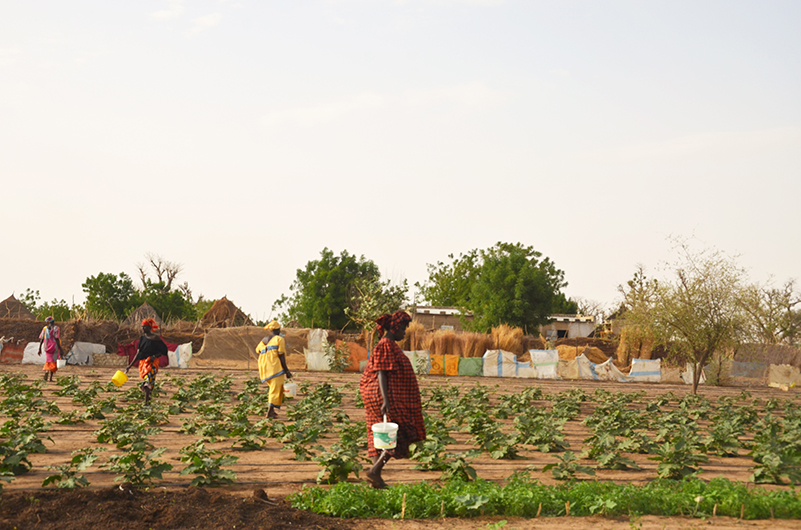Since March 2020, the community of Mbossedji has been fighting the effects of the COVID-19 pandemic on their health and livelihoods. Being one of CREATE!s newer partner communities, Mbossedji was still in the early stages of implementing their development program when the pandemic hit the world. But with the support and sponsorship of Rotary International led by the Bellevue Rotary Club, Washington, USA and the Rotary Club Dakar Millénium, Senegal, the project in Mbossedji has not stopped.
Working with the CREATE! technicians, the committed participants from the community of Mbossedji have been successful in maintaining all their activities from sustainable gardening to poultry raising. This has led to an improvement in their income generation opportunities that helps sustain these programs in the future. Mbossedji is also participating in their first reforestation campaign this year and the community, led by their President, Ndeye Diop, are very excited about the changes that this will bring.
Responding to a Global Pandemic:
The COVID-19 pandemic adversely affected all rural communities in Senegal where water is a scarce commodity that makes recommended hygiene practices to prevent the spread of the virus difficult to follow. Together with that, the curfew imposed by the Government of Senegal had slowed down and stopped activities such as weekly village markets, an extremely important aspect of Senegalese life. Expected cultural behaviors like greetings with hand are also now not possible. In times like these, the community of Mbossedji has depended more on programs such as community gardening to put food on the table for their families. The solar-powered water pumping system to access clean water for drinking and gardening has helped especially now with sanitation practices.
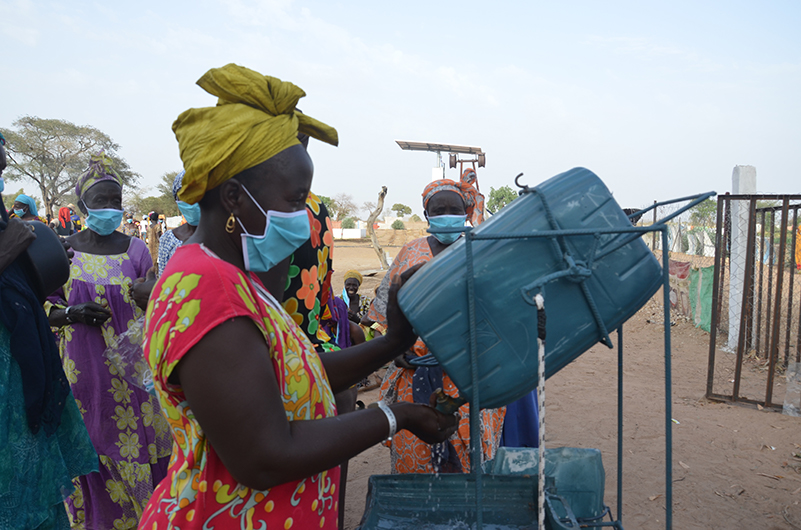
CREATE!s Senegal staff worked hard to ensure the safety of the community. Since not working in the face of this pandemic is not an option for the project participants, to help them keep working while remaining safe, CREATE! held awareness training on all safety measures. To prevent the spread of the virus, the weekly mobilization meetings were stopped for the time being, the members were taught to work separately with distances of at least two meters (6 ft), and to wear masks. CREATE! provided the community members with masks, set up hand washing and sanitation station in the community garden site and trained members on essential hygiene routines like washing hands often and to disinfect.
The hand-washing station provided the community members with clean running water to wash their hands after working in the fields. This water is coming from the well in Mbossedji that was rehabilitated with the support and funding from the Rotary clubs. Soap and other disinfectants are also provided to the community for this purpose. This station has reassured the participants and helped them carry out their activities maintaining proper hygiene.
While COVID-19 has restricted and slowed down activities and affected usual program timelines, the community of Mbossedji has learned to work with these regulations and are continuing their work towards attaining self-sufficiency with the support of the CREATE! technicians and the Rotary clubs. The technicians have restarted the weekly mobilization meetings while keeping the safety measures in place. The gardens have been thriving. In fact, during the initial phase of the restrictions that closed the village markets, the community garden served as makeshift market for the neighboring villages, selling their fresh produce to their neighbors and friends.
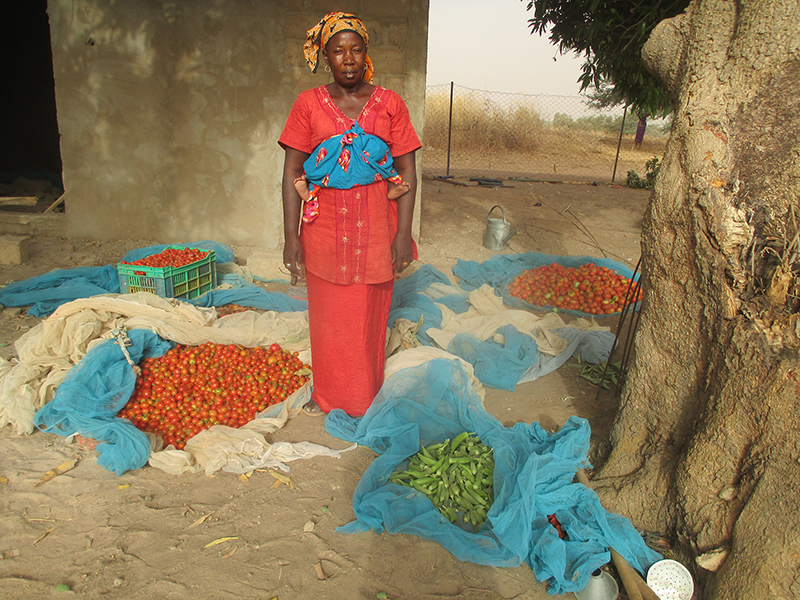
Sustaining Program Activities:
As mentioned above, during the pandemic, one of the main activities that the community participants depended upon was the cooperative garden. While the pandemic overlapped with Ramadan and a very hot summer, the community still cultivated more than 90% of their two acre garden site, producing three to four different varieties of nutritious vegetables every month, including tomatoes, lettuce, African eggplants, peppers and mint.
From April 2020 to July 2020, the community produced more than 850 pounds of vegetables and 3200 bunches of leafy greens like lettuce and mint. This not only served as a source of food and nutrition during the lockdown period when the markets were closed, but also as a source of income through selling to neighboring villages. The production was of course made possible due to the access to clean water from the rehabilitated well and solar pumping system that helped pump out 30,000 liters of water every day on an average, even during the peak summer months.
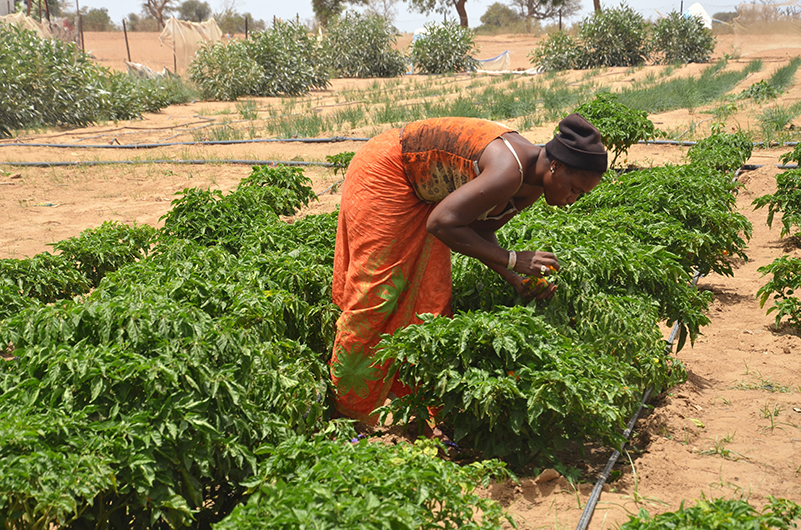
Together with the gardening activity, the community members also sustained their poultry raising and sold nearly 300 chickens during the months of April to June 2020, especially during the festival of Korite in the month of May. Poultry raising is not just a profitable activity for the project participants but also a regular and affordable source of protein for the community members. Before they started this activity, the community could rarely consume chicken as the market was far away and the price was too expensive for regular consumption.
Both the poultry and the vegetable cultivation have helped the community members improve their income generation capacities. During the months of April to July 2020, even with a pandemic, each community participant thus were able to earn about $3 per month on an average from the sale of their produce and poultry. This added income benefits their family by improving their ability to seek out health care and education for their children.
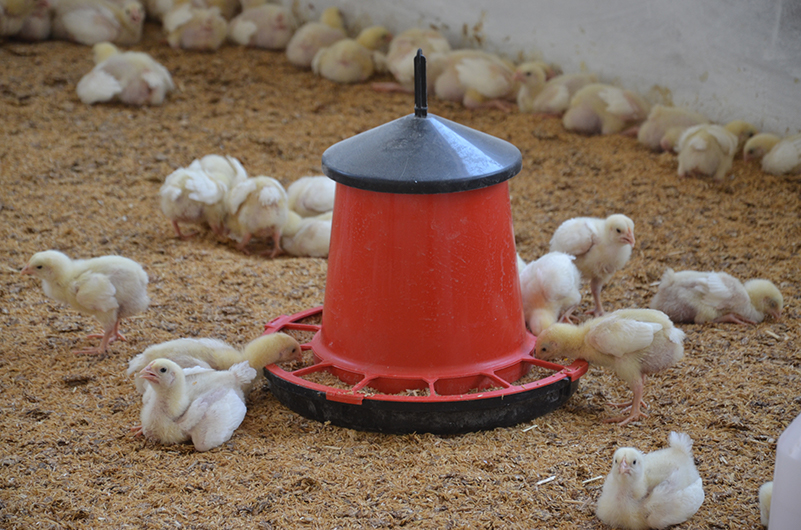
While the pandemic has restricted movement for the community, the continuation of activities has allowed the women to spend time with each other in the garden site, even if physically distanced. For a culture where meeting and talking to each other is an essential ingredient of everyday life, the ability to continue to safely do that has provided the women of Mbossedji with a much needed sense of belonging and purpose.
Planting Trees for the Future:
Each year during the rainy season, CREATE! hosts an annual tree-planting campaign. Mbossedji is participating in this campaign for the first time this year. Before the campaign began, a tree nursery with various saplings was established in the community. These saplings will be planted within in the community during the month of August, or traded with other villages so that more people can enjoy the benefits of the trees. CREATE! field technicians facilitate the tree planting activities, advising community members on best practices for where to plant trees, what varieties to grow, and how to maintain them so they can put down strong roots before the next dry season begins in October.
As desertification continues, these tree-planting campaigns become even more crucial for rural communities and their surrounding environments. Ndeye Diop, Mbossedji’s Community Garden president says, “We know the importance of trees and with CREATE!‘s support we will plant many trees in the village. These trees will create a good microclimate and much shade in the future.” Trees are a part of everyday life in Mbossedji from providing fruits, shade, medicine, firewood and more. By leading her community in an annual tree-planting campaign, Diop will be paving the way for the next generation to continue building a healthier environment.
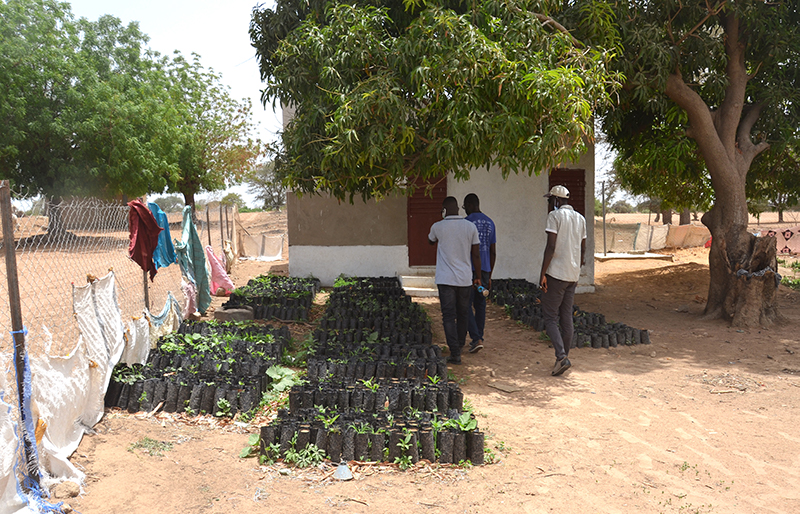
As most communities in rural Senegal struggle to sustain themselves through a global pandemic, the people in the four villages that constitute the Mbossedji cooperative are grateful for the support they have received from the Rotary Foundation and CREATE! to continue to thrive. As they say in Senegal, Leppay Bakh, Incha Allah, which means everything will be better soon. In the meantime, the community continues to work while having faith in their ability to move forward towards self-sufficiency.

